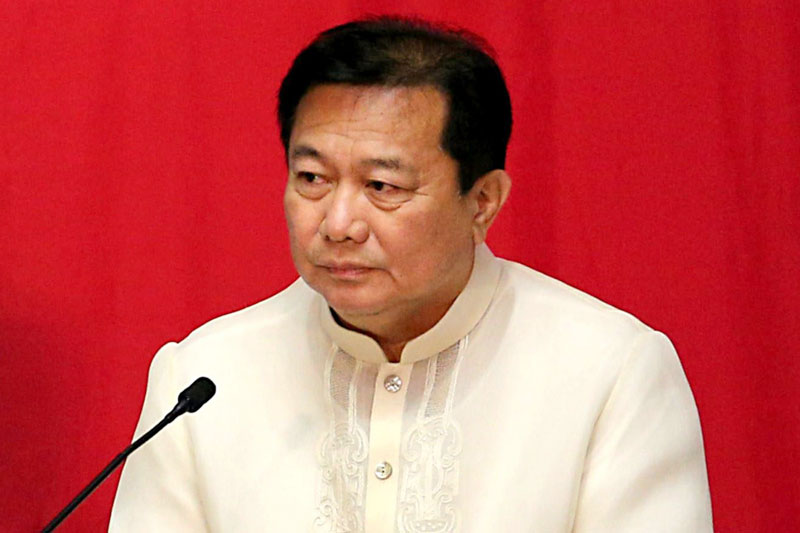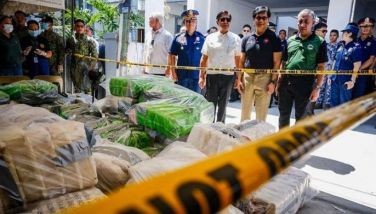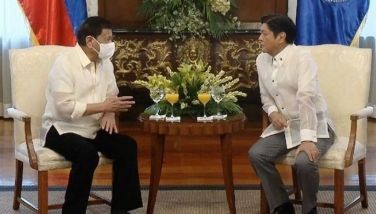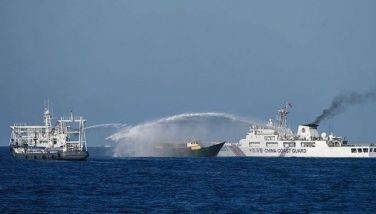Fact check: Does the ICC have jurisdiction over Duterte?
March 7, 2018 | 3:49pm
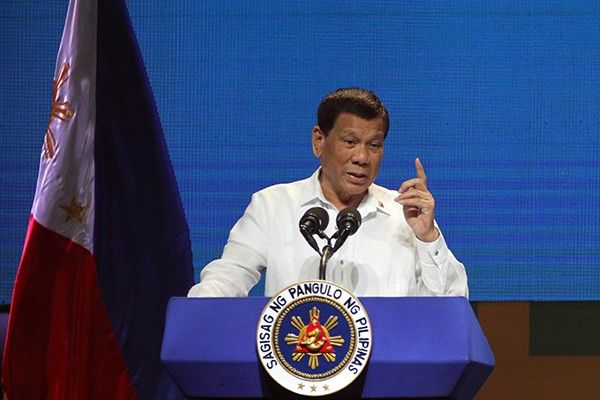
President Rodrigo Duterte has insisted that he would not allow the International Criminal Court to investigate him.
Krizjohn Rosales
MANILA, Philippines — President Rodrigo Duterte claimed that the International Criminal Court cannot acquire jurisdiction over him.
"Not in a million years," Duterte said in a speech.
The ICC has started a preliminary examination into the alleged crimes against humanity committed by the Duterte administration in the conduct of its crackdown against the illegal drug trade.
The preliminary examination stemmed from the communication sent by Jude Sabio, lawyer of self-proclaimed Davao death squad member Edgar Matobato. The lawyer claimed that Duterte was behind the killing of 1,400 people in Davao City and 7,000 drug suspects nationwide.
The Philippine president, however, insisted that he will not allow the ICC to investigate him.
Jurisdiction
On July 17, 1998, over 120 states, including the Philippines, adopted a treaty known as the Rome Statute of the International Criminal Court. The permanent international court was established to investigate, prosecute and try individuals accused of genocide, crimes against humanity, war crimes and the crime of aggression.
"For the first time in the history of humankind, States decided to accept the jurisdiction of a permanent international criminal court for the prosecution of the perpetrators of the most serious crimes committed in their territories or by their nationals after the entry into force of the Rome Statute on 1 July 2002," the ICC primer read.
The ICC is not a substitute for national courts and can only intervene when a State is "unable or unwilling genuinely to carry out the investigation and prosecute the perpetrators."
By ratifying the Rome Statute, the Philippines becomes a party and accepts the international court's jurisdiction. By this virtue alone, the Philippines has accepted that the ICC has automatic jurisdiction over the country.
On December 2000, Deputy Permanent Representative to the United Nations Enrique Manalo signed the Rome Statute. The Philippines ratified the Rome Statute, becoming the 117th state party to the treaty.
"The Court's jurisdiction will not be retroactive. It can only address crimes committed after the entry into force of the Statute and the establishment of the court," the ICC said.
Duterte is accused of committing crimes against humanity for being directly responsible for "extrajudicial executions and mass murder" since he began his drug war as Davao City mayor in 1988.
The ICC defines crimes against humanity a "widespread or systemic attack directed against any civilian population." Such attacks include murder, extermination, rape, sexual slavery, enforced disappearance of persons and the crime of apartheid.
Such acts can also be penalized under domestic law through Republic Act 9851 or the Philippine Act on Crimes Against International Humanitarian Law, Genocide, and Other Crimes Against Humanity.
Withdrawal
The Philippine government had earlier threatened that it will withdraw from the ICC if it would not serve the "principle of complementarity" wherein the international court will only exercise jurisdiction when the accused state party is "unable or unwilling" to prosecute the crime.
“And to violate the principle of complementarity would be to violate the very basis of our consent to be bound by the Rome Statute and if this will happen, then there may be a possibility that the Philippines, like the three other African states, may withdraw from the Rome Statute of the ICC," presidential spokesperson Harry Roque said in December.
Under Article 127 of the Rome Statute, a state party may withdraw from the treaty through a written notification addressed to the UN Secretary-General. The withdrawal will take effect a year after the date of receipt of the notification.
However, criminal investigations and proceedings will still continue once it started before the withdrawal was effective.
"A State shall not be discharged, by reason of its withdrawal, from the obligations arising from this Statute while it was a Party to the Statute, including any financial obligations which may have accrued. Its withdrawal shall not affect any cooperation with the Court in connection with criminal investigations and proceedings in relation to which the withdrawing State had a duty to cooperate and which were commenced prior to the date on which the withdrawal became effective, nor shall it prejudice in any way the continued consideration of any matter which was already under consideration by the Court prior to the date on which the withdrawal became effective," the statute read.
In this case, the ICC will still pursue its investigation into the allegations against Duterte if ever the Philippines decides to withdraw from the treaty.
BrandSpace Articles
<
>
Philstar
x
- Latest
- Trending
Trending
Latest
Trending
Latest
Recommended















